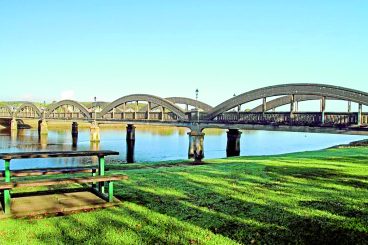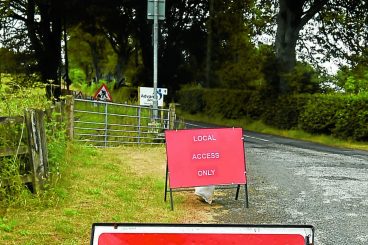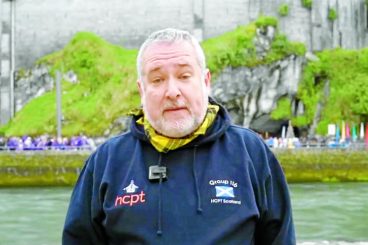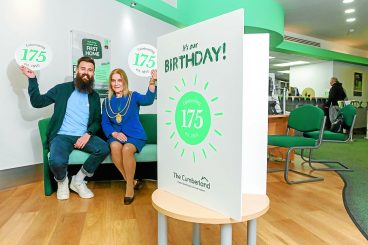IT was 1996 and Linda Dorward made her way down the unfamiliar corridors for the first time.
Rows of steel doors were locked – and hundreds of criminals were serving their time behind them.
For someone whose first job was cleaning factory offices, followed by serving in shops and working in the hospital- ity trade, Linda could never have predicted this twist in her career path. Or where it would later lead to in Dumfries.
“Entering a prison for the first time is daunting,” said Linda.
At the same time, her ex- perience as a psychiatric nurse by that point had helped prepare her for what had the potential to be a tense and hostile environment. She had just walked into HMP Perth, which had a capacity for nearly 700 male prisoners, and had kept gen- erations of offenders locked up since it first opened in 1840.
Having worked for Fife Health Board for the previ- ous seven years, latterly as a senior charge nurse in acute psychiatric admissions, Linda moved to work in the Scottish Prison Service (SPS). Perth prisoners were the new patients, and Linda went onto spearhead the opening of the first psychiatric day hospital in the entire prison service estate in Scotland.
Her success in the role led to an unexpected shift into a senior job running prisons day-to-day. “When I joined the Scot- tish Prison Service, nurs- ing staff moving across into senior operational roles was definitely not the norm,” ex- plained Linda.
“It was still a very male-dominated environ- ment, and, I would suggest, at that point, institutionally biased.”
This unusual career path was not in the script for Linda but, having been brought up in a working class family in Dundee, putting in a tough shift became part of her DNA.
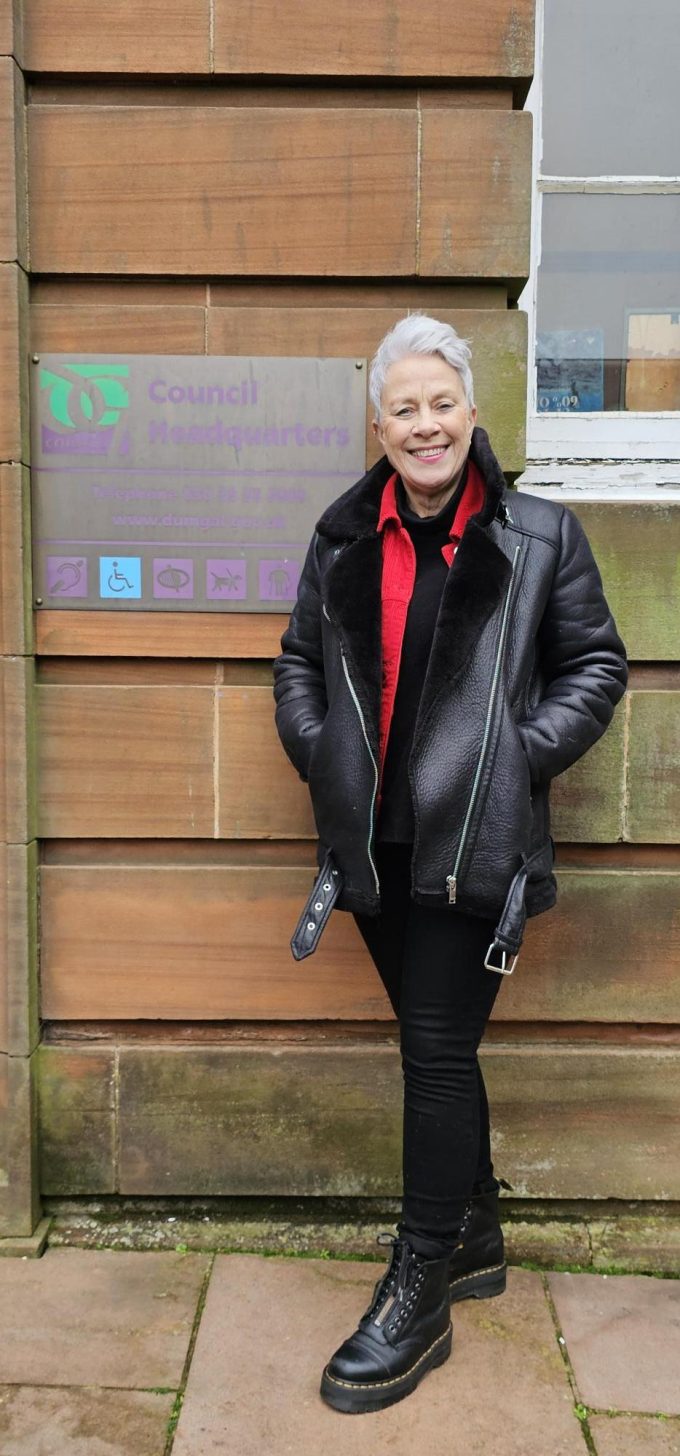
Losing a parent as a teenager, and with financial pressures on the family, Linda stepped up and further developed her work ethic. She said: “My first job was at 13, cleaning factory offices in the evenings, after school. I worked throughout my high school years in shops and when I was 18 in hospitality.
“My dad died when I was 13 and my mum and I both worked hard together to successfully keep our small family unit financially afloat.
“I achieved the requisite qualifications and fulfilled my ambition to attend Dun- dee University, becoming one of the first in my family to do so.
“But I left before complet- ing my MA degree, moved to Edinburgh and undertook various roles in the hospital- ity industry before success- fully applying to become a psychiatric nurse at Fife Col- lege of Nursing in 1986.”
In later years, the ca- reer crossover from health worker to operating in the justice system resulted in working with local author- ities in Tayside and North- ern Scotland as a community justice liaison manager.
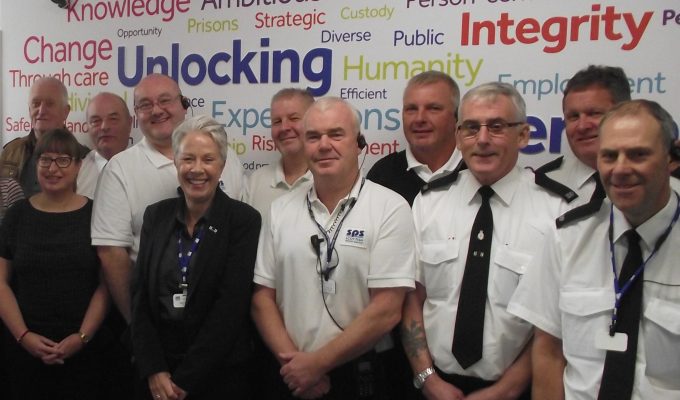
She went onto lead the groundbreaking project which made all prisons ‘smoke free’ on November 30, 2018. A year later, after a variety of senior operational roles, Linda was appointed to the top job – Governor in Charge (GiC) of HMP Dumfries.
Built in 1883, the historic B-listed is one of only three purpose built 19th century prisons still in use, alongside Perth and Barlinnie. The latter was the scene for infamous riots and a prison siege in the late 80s.
Meanwhile, in 1987, 50 inmates gained control of D-hall at Peterhead Prison, took two wardens hostage, and a siege only ended after elite SAS soldiers stormed the building. Asked if thoughts of ex- treme situations like this crossed her mind, Linda said: “All levels of staff are trained to deal with the unexpected and, whilst this did not oc- cupy my mind, you learn to read the room and know along with your team when something is amiss.
“You then implement the requisite responses.”
She continued: “A little known fact is that prisons are generally safer and more predictable than an acute admissions psychiatric ward or an A&E facility, with some notable exceptions, but extreme events are rare.
“Prisons run on routine and a structured schedule, along with the reciprocal and respectful relation- ships between staff and individuals in their care.
“Things can change rapidly and you learn to expect the unexpected and revert to a ‘high alert’ mode when you are at your work.
“Scanning your environment be- comes second nature and moving from a relaxed, empowering leader- ship role to ‘command and control’, when required, is a requisite skill. Fortunately, a relaxed and empow- ering leadership style is called on more frequently than command and control – and it goes without saying that the ability to stay calm or appear calm is vital.”
It turned out that hostilities or riots within the prison walls were not Linda’s biggest challenge in her role as governor. She said: “The biggest challenge presented in my time in HMP Dum- fries, and in my entire prison career, was managing and leading the es- tablishment through the covid pan- demic.
“This was not an acute incident, and whilst command and control was in play, when required, we had no play book or training for this.
“My previous nursing experience helped in terms of understanding infection control parameters, but I cannot praise my (then) staff enough as to how they collectively responded to this extreme crisis.”
A year after leading the team at HMP Dumfries through the pan- demic, Linda decided to retire.
As a Labour Party supporter all her life, Linda stood to become a council- lor for Dumfries and Galloway Coun- cil in May 2022, successfully being elected to serve the Lochar ward.
“Here I am, loving every minute of it, almost three years later,” she said.
From cleaner and shop worker to psychiatric nurse and prison governor – and now settled in politics, it’s been a colourful career for Councillor Dor- ward.
But who are the most inspirational people that have helped to shape her career values?
Linda answered: Labour politician Barbara Castle, music icon Madonna, and Teresa Medhurst, chief executive of the Scottish Prison Service.
She explained: “All three of these individuals have character traits in common: resilience and integrity, both essential in my book.”









